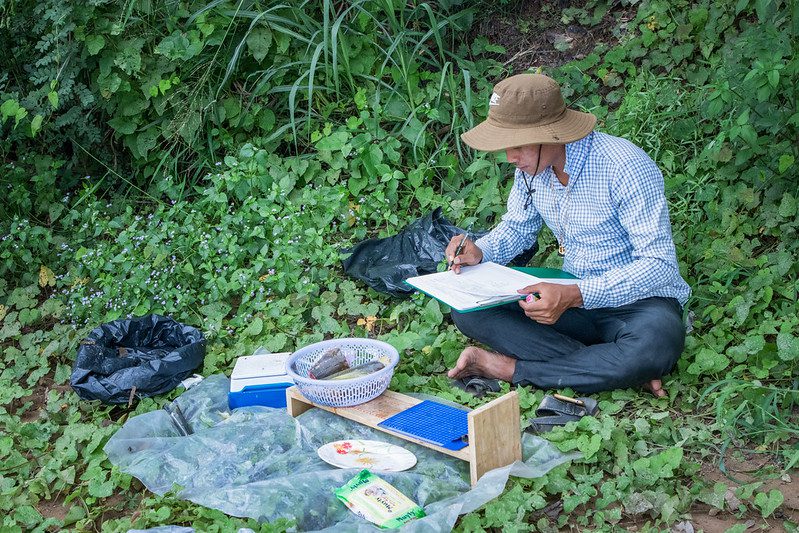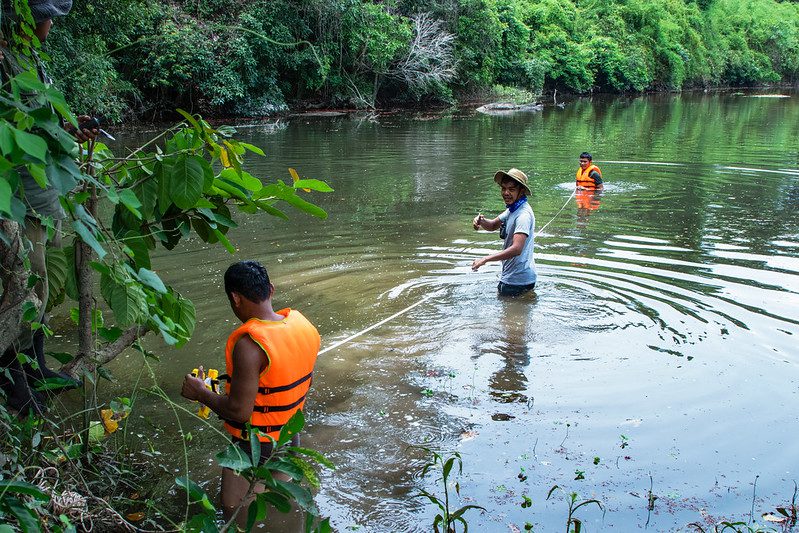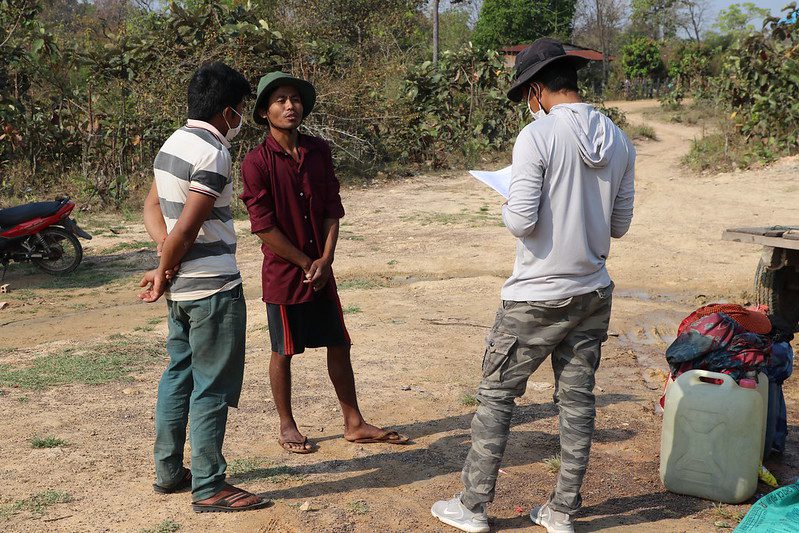Monday March 13, 2023

All too often, there is little time for reflection and learning when a conservation project concludes. This is especially true for small organizations whose funding is frequently tied to specific projects. Once an organization reaches the end of a grant period, they often must rapidly shift their focus to new projects to ensure continued financing of their operations. Fortunately, many of the international organizations funding global conservation efforts recognize the importance of reflection, sharing experiences, and project impact evaluations. One such effort recently took place in Cambodia, where the Critical Ecosystem Partnership Fund (CEPF) engaged FISHBIO and project partners to conduct a third-party evaluation of multiple projects focused on improving the conservation and management of freshwater resources. After working with six different CEPF-grantee organizations over a period of two years, FISHBIO concluded the evaluation effort by bringing everyone together in an impact-sharing and learning workshop in December of 2022. This culmination of the evaluation was not only an opportunity for FISHBIO to share key findings and evaluation tools, but also to allow the grantees themselves to speak on their experiences and learn about the work of other organizations throughout Cambodia.

In 2020, CEPF provided funding to over a dozen grantees to conduct freshwater-focused projects throughout the Cambodian Mekong. This watershed falls within the Indo-Burma Biodiversity Hotspot, a region CEPF has prioritized for investment in conservation efforts. Though the projects were all related to freshwater ecosystems in some way, their specific goals, desired impacts, and methodologies varied significantly, and therefore evaluating each of them required the development of a flexible evaluation framework. To this end, FISHBIO worked with social scientist Dr. Joanne Millar of Charles Sturt University, fisheries biologist Dr. Vittoria Elliott of the Smithsonian Institute, and local Cambodian partners from Young Eco (YEA) and the Inland Fisheries Research and Development Institute (IFReDI) to develop and implement a four-part evaluation process. Evaluation components included a review of grantee proposals; an evaluation of grantee organizational capacities; baseline and endline monitoring of biodiversity and aquatic habitat using a standardized rapid-assessment protocol; and a social assessment of community perceptions and livelihood impacts.

With extensive support from local partners and representatives of the grantee organizations themselves, FISHBIO was able to collect a wealth of information that improves understanding of the impact of CEPF investments, and the collected data represent an excellent opportunity for learning. By bringing the grantees together at the learning workshop, it was possible to highlight their complementary skills, and also to explain the tools and methods that were developed for the evaluation. The workshop also provided grantees the opportunity to share stories of the challenges and successes of each of their respective projects, and group discussions were held to identify priority challenges for the conservation and management of freshwater resources in Cambodia. These discussions highlighted that many groups were encountering similar challenges, including contending with illegal fishing, limited communication and coordination among non-governmental organizations (NGOs) and government agencies, and lack of sustainable funding. Identifying these key challenges allowed for brainstorming of proposed solutions, which included developing and strengthening organizational networks to coordinate action and share ideas, collaborating on joint project proposals to leverage complementary strengths, and unifying to advocate for important policy changes at the national level. Further, the inclusion of representatives of relevant government agencies in the workshop – including the Ministry of the Environment, the Fisheries Administration, and IFReDI – allowed for direct discussions between NGOs and officials about how they may best work together.

Critical evaluations of project outcomes are generally rare in conservation, and this evaluation project and associated workshop represented a highly valuable opportunity for learning and adaptation. The value of evaluation and monitoring is amplified through repeated applications, and the outputs from this project represent a baseline against which future efforts may be compared. This iterative learning process provides the data necessary for the adaptation of conservation approaches to improve impacts, and to identify emerging challenges that need to be addressed. However, perhaps the greatest value of this workshop was connecting the grantee organizations and relevant government agencies, and providing an improved mutual understanding of the roles, activities, and expertise of each group. Further, highlighting the fact that these groups are all facing similar challenges created common ground, and allowed for cooperative generation of potential solutions. The network established through this workshop will continue to facilitate these discussions, and will allow for collaborative projects to generate greater positive impacts in the future. The sharing of ideas, insights, and lessons learned through diverse conservation projects provides a strong basis for improving natural resource management and protection of biodiversity in the Mekong Basin and beyond.
This post was featured in our weekly e-newsletter, the Fish Report. You can subscribe to the Fish Report here.
